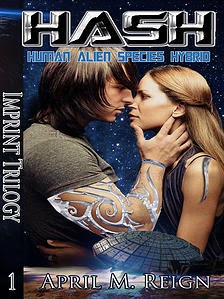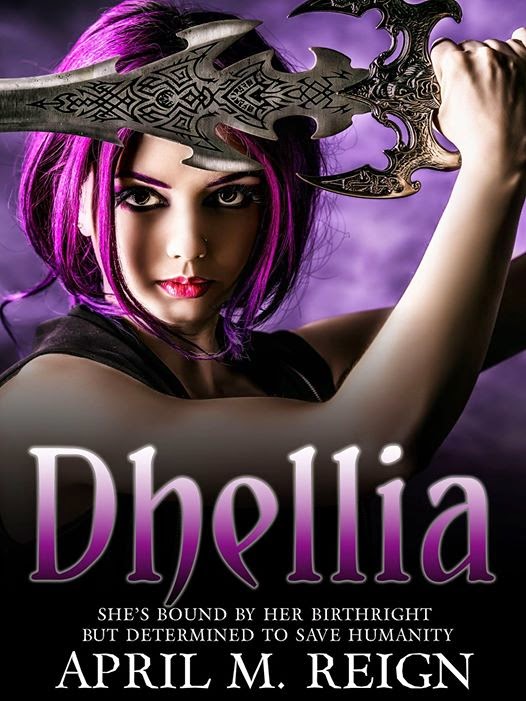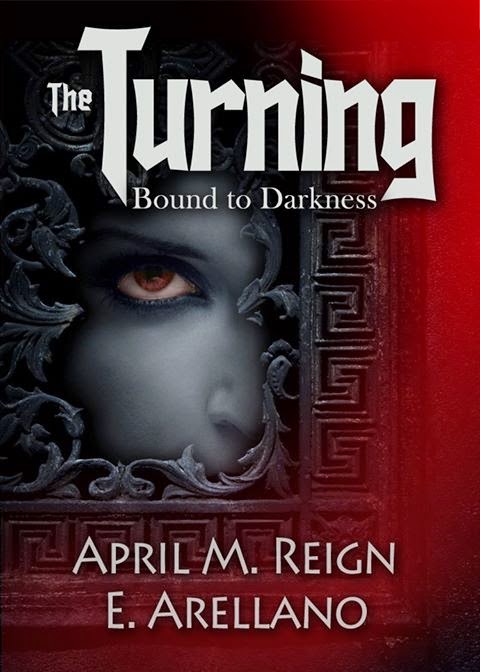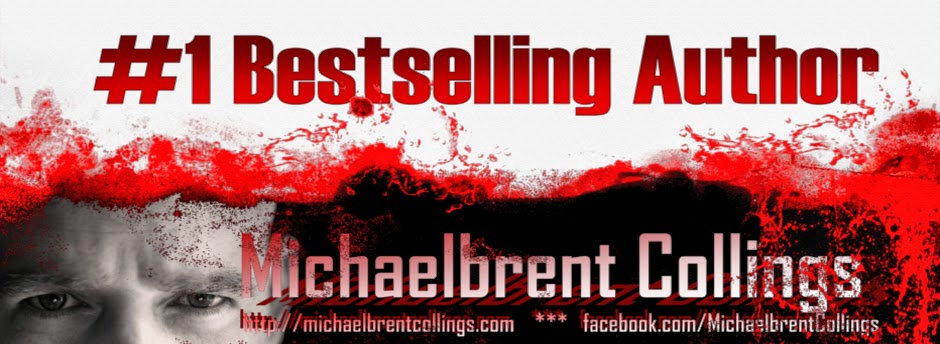Today we have a very special
guest, best-selling author, April M. Reign. This from her bio: April was
born and raised in Southern California by her happily married parents. She is
the oldest of three daughters and considers both of her sisters to be her best
friends. Growing
up, she was involved in many sports: softball, surfing, tennis, and Kenpo
karate. Many weekends at the beach with her family included her father packing
up the long boards and teaching all three daughters how to ride a wave. The
activity that stands out the most for her is the thirteen years that she spent
studying karate with her family. The family’s karate days remain as some of her
fondest memories. Sports weren’t the only activities that she enjoyed. She
played the accordion for twelve years and even played for Jerry Lewis kids
fundraisers. During those years, she learned how to read and write music.
Besides writing music, during her high school years, she also discovered her passion for writing words. At fifteen, she began writing poetry. By the time she reached the age of twenty, she was writing short stories, with no other intention than to get the stories from her mind to paper. At twenty-one years old, she married and shortly after, two handsome sons graced her life. When her marriage ended, she faced the long, difficult path of raising her two boys into strong, well-mannered young men. She took on the task with fervor. In order to support her children, she worked as a litigation analyst for ten years at a large company and began to pursue a career in law. After long hours in college and even more hours at the law library, while still raising her children alone, she realized that practicing law was not the dream that she wanted to live. She spent the next eleven years as a U.S. Customs Broker, working directly with the FDA and FWS, clearing international shipments into the country. While she worked full time and raised two adolescent boys, she also decided to follow her dream to write a book. A year later, Enticing the Moon was published. Since then, she has written more than 25 novels and several short stories, and has entered many writing contests, winning first place on several occasions. As an indie author, April M. Reign writes and publishes her own books. With the increase in her book sales, she was able to give up her job in the corporate world and pursue her dream of writing stories, which she hopes capture the attention and intrigue of her readers.
Besides writing music, during her high school years, she also discovered her passion for writing words. At fifteen, she began writing poetry. By the time she reached the age of twenty, she was writing short stories, with no other intention than to get the stories from her mind to paper. At twenty-one years old, she married and shortly after, two handsome sons graced her life. When her marriage ended, she faced the long, difficult path of raising her two boys into strong, well-mannered young men. She took on the task with fervor. In order to support her children, she worked as a litigation analyst for ten years at a large company and began to pursue a career in law. After long hours in college and even more hours at the law library, while still raising her children alone, she realized that practicing law was not the dream that she wanted to live. She spent the next eleven years as a U.S. Customs Broker, working directly with the FDA and FWS, clearing international shipments into the country. While she worked full time and raised two adolescent boys, she also decided to follow her dream to write a book. A year later, Enticing the Moon was published. Since then, she has written more than 25 novels and several short stories, and has entered many writing contests, winning first place on several occasions. As an indie author, April M. Reign writes and publishes her own books. With the increase in her book sales, she was able to give up her job in the corporate world and pursue her dream of writing stories, which she hopes capture the attention and intrigue of her readers.
And
here she is, sharing much valuable information for those of you interested in
the writers' life and Self-Publishing.
Where do you get your
inspiration from for your writing?
Oh William,
there are so many things that inspire me. A dream…a conversation or even a
newspaper article can strike up my creativity. However, writing full time can
be a lonely job. Therefore, I use my travel vlog, Uncovering California, as a
major source of inspiration.
On my vlog, we’ve
stepped into an abandoned insane asylum, ventured on a deserted [island] hike to
a 1961 abandoned shipwreck, took on haunted cemeteries, and captured the
abandoned, yet famous resort, The Salton Sea, where there were three inches of
fish bones resting on top of the sand. One adventure to a 1700’s plantation in
New Orleans gave us the opportunity to capture on film the same spiritual Orb
in two different places on the plantation. It’s those adventures that thrust me
into my deepest creative mode.
Where do you get your
inspiration for the way you brand yourself as an author?
This is such
a great question because I think many people miss the opportunity of branding.
I’ve come to realize that writing is the easiest
part of this industry and being an indie author who wears many hats is the
hardest.
So what is branding and how do I go about it?
Every
successful business has a brand and it starts with that reliable logo that
makes the consumer feel safe. Amazon, Apple, Mc Donald’s, and Best Buy among a
plethora of others have that one logo that gives us, as the consumer, comfort while
differentiating them from others that may sell the same service or product.
What does that mean for Indie authors?
It means that
your branding should set you apart from the millions of other authors out there
as well as give your readers a sense of trust and security when they pick up
your books to read. And this is just a tiny part of branding.
When my readers pick up my books, I want them to trust in the quality and consistency of my work. When they see the AMR logo, I want them to get a sense of excitement knowing that my story will have action and intrigue.
Branding isn’t tangible. It’s a feeling, emotion and sometimes physical need provoked by your brand on to the consumer. I’m going to release some free pamphlets on branding and many other things when it comes to being a successful indie author. I encourage your readers to visit my website over the next two months to grab these important downloads that will take a writer from conceiving a story to writing the story to marketing and discovering success.
Did you try to get
publishing contracts for your books early on with traditional book publishers?
If so, did you have any success there or if not what was it that made you
decide to self-publish the majority of your work?
Originally, I did NOT
try to get a publishing contract. What was a publishing
contract? My once naïve mind thought writers like Stephen King and Nora Roberts
only got things like that.
I’ve always been a
writer but my first book, I wrote for my family. Having no idea how to go about
obtaining a publishing contract, I used a vanity press to publish my book, so I
could hand the paperback out to family and friends. After I wrote my second
book, I discovered Amazon’s self-publishing platform. The first month that my
book was live on Amazon, I made $90.00. That was an exciting time. The second
month it had increased to $423.00 and by the third month, I’d reached an
unconceivable amount of $1500.00.
Why would I go to a traditional
publisher?
Because. Like every
writer, in the early stages of our craft, we want validation by a company of
people that may know more about the industry than we do. So, I submitted my
third book to a mid-sized publisher. I got an email back stating they were
interested, but they wanted me to re-work my first chapter. I cringed. That was the only chapter they had read so
far.
I’d already had the
taste of being my own boss, and being my own creative team. I thought long and
hard and realized that whether they were right or wrong, I didn’t want to give
up that side of my creativity. I wasn’t ready to turn over my work and have it
torn apart (not in editing, I’m okay with that) in storyline, title or vision. I published my third
book and watched my sales on the 6th month go from $2400.00 to $3600.00. This
was a dream come true!
Why self-publish?
Self-publishing or
traditional publishing is a personal journey. As stated above, you know which
journey I chose and the reason why. I encourage new writers to consult
themselves, their needs, their goals before making the decision.
Once you have decided that
self-publishing might be your route, what financial and artistic considerations
should you keep in mind before you begin?
This is going
to sound strange but I think it plays a big part in how successful you are as
an indie author.
Are you a controlling person or are you able to
let go of work and delegate?
Either one
can be successful, but if you’re controlling and you go against your nature by
letting go, you may spend most your time worrying if things are getting done
right. With that said, if you’re able to let go, but you try and do it all, you
may become overwhelmed with the various outlets you’ll need to know in this
industry.
So, first, determine
your personality. If you want to take on
all the work yourself, you’ll save money but lose time. Let me say that again: YOU’LL SAVE MONEY BUT LOSE TIME! Keep in
mind, in this business, time is valuable. When you lose time, you’ll have to
set your writing aside to accomplish the other demands of indie publishing.
What needs to be done after the story is
written?
· Editor
· Interior formatting for
eBook
· Book cover Design
· Publish on various
platforms
· Promotional setup and
planning
· Interior formatting for
paperback
· Paperback book cover
design
These are a few of the things that you can do
yourself or outsource to a professional.
Keep in mind, if you’ve
never done graphic design before, your book cover will probably not look as
professional as you want it to look. Also, editing is a must and formatting is
important. As I stated earlier, remember branding. You don’t want readers to see your author
name and cringe because they know the interior will be completely off or the
editing will be non-existent.
Your name. Your brand. Your decision.
Those free pamphlets I talked about will have
a deeper list of duties as an indie author plus links to places where you can
start to hire your team, or learn to do those things yourself. They will be on
my website and launched over the next two months.
What do you see as your
most innovative promotional strategy?
There are so
many strategies that an indie author can use to promote their work. I don’t
have a “most” innovative strategy because we’re in a very noisy world on Amazon
and social media, so it’s been trial and error for me.
Some things
have worked like a charm and others have left a lot to be desired. In the end, I’ve
put together a list of those do’s and dont’s according to my years of
experience. There is one amazing promotion that I did, which garnered 23,000
downloads in 4 days. It was a remarkable strategy that I will share with you on
those free pamphlets I’ve talked
about.
What kind of marketing did you do to
establish your author brand and what do you think is the most successful
marketing for self-published authors?
Marketing is a
business all unto itself. Remember when we talked about assessing the type of
personality that you are? Unless you have a ton of time to research the ins and
outs of marketing, you may want to hand it over to someone with more
experience. Otherwise, I will have a free pamphlet giving you some insights on marketing and
directions to go with that decision when it comes to your business.
With that said, it’s not
enough to throw your book out there, tweet a couple times a day and post some
FB messages. In this day and age, connection is more important than anything.
It’s building relationships with your fans and readers while providing quality
work that will set you apart from other authors.
For my brand, I don’t
let one email go unanswered, one Facebook message unopened. Everyone is
important to me and every question needs to be answered to the best of my
ability. Helping others makes me happy. I wouldn’t want Best Buy to ignore my
question when I ask, so why would I let my readers, fans and fellow writers
down?
Although, there’s more
to it than that, but that’s where I’d start in building a brand and a marketing
strategy that works.
How important are ‘series’ books to your
success as a self-published author?
Aside from series
books being important in their own right, I love writing them. The deeper into
the series I write, the more I get to know the characters and what their all
about. It’s like I’m learning with the reader.
But there are different
things you can do for your readers when it comes to series that gives you
flexibility. Like sharing the first book in the series free, or putting the
entire series in a box set and slashing the price. I think it gives us room to
reach our readers and share with them the deeper story of our characters. It
allows plot lines to twist and turn and weave through the course of all the
books rather than just one.
Why do we watch, The Walking Dead, Breaking Bad, and
Scandal?
We love to follow the
lives of our favorite characters and even our favorite reality show stars. It’s
in our nature. If you haven’t started a series, it’s very important that you
do.
Do you design your own covers? How
important do you think cover design is to a potential reader and how big a part
do you think it has played in your success to date?
Yes, I design most my
own covers. I’m the “controlling” person I talked about above that has a hard
time delegating work. I know this about myself, so I’ve spent endless hours
learning and practicing cover design. However, I also know when a series cover isn’t
working. At that point, I’ve hired out for help.
I can’t express how
important a cover can be. It’s as important as keywords, categories etc. In my free pamphlets, I will go over all those things in depth.
I’ve made mistakes in
the area of graphics and one series has struggled for 2 years because of those
mistakes. Finally, with the latest cover, it’s hit 3 bestselling lists. Don’t
skip over how important cover design can be… it’s another step in branding that
will make you stand out or cause you to fall to the bottom of those mountains
of books on publishing platforms. Also, don’t be afraid
to rebrand your books and covers. Many big businesses do it just like many
authors do it.
In your opinion, is traditional publishing on the way out? Do you think that traditional publishing can continue to keep up with the rise of self-publishing?
No, I don’t think
traditional publishing is on the way out nor is self-publishing. At this point,
I think the industry has a lot of changing to do. It will be interesting to see
how it changes and how we take on those changes.
Would you ever consider signing all your
books to a traditional publishing house or will you always mange some of your
titles yourself through self-publishing?
I never say never… but
in this case, probably never. :D
Have you ever used free book promotions?
Do you think they are a worth-while marketing tool for self-published authors?
If so/not – why?
Yes! Every new reader
makes it worth the time and effort. This isn’t a get rich quick market nor is
it a get famous quick industry. What works for me may not work for someone
else, but free book promotions are more than worth your time and effort.
If you’ve written a
good book, branded yourself well and taken the time to connect with readers, then
who wouldn’t want a new fan on board reading your work. It doesn’t matter where
you get them as long as you get them.
If you were able to reach them through free book promotions
then what have you lost?
There was a time when (now
famous) authors had to drive from book store to book store in order to solicit
the brick and mortar to sell their book in their store. Those who wanted it bad
enough… did it. Those who didn’t may have taken a different route to find
success or they failed altogether.
Luckily, we have this
thing called the internet at our fingertips. Why not use it to its full
potential? Why not market on free book promotional sites? You’d be a fool not
to.
Do you feel there’s a good sense of
community within the self-publishing industry?
Absolutely. I’ve met
some great people and amazing writers.
What would you say is the
single biggest advantage of deciding to self-publish?
Having
creative control.
Are there things you feel as though you
missed out on by not going down the traditional publishing route (working
alongside an editor, for example)?
Yes! I feel I missed out on having a middle person take some of
my money! HA!
The fact is, William,
I work alongside an editor and sometimes two, cover designers, formatters,
industry specialists and many others. Aside from that, I know the entire
process. I’ve streamlined my writing to such precision that I can publish 12
novels in a single year. I know what goes into making this writing career work.
So why would I ever want to go the traditional route?
I like keeping my
profits and would never want to give them away at this stage of my career. (Unless
we’re talking big, big advance.) <smiling>
Would you recommend other
aspiring self-publishing authors pay for particular services? Editing or cover
design, for example?
In my
opinion, I think EVERY writer should
pay or have a professional editor scour their manuscript. Keyword is PROFESSIONAL! We’re all human beings and
we all skip over things when we read. We have a trained eye to be able to read
words that are misspelled and not even realize that we passed them up. Don’t
skip the editor…
Everything
else goes back to your personality type and your skill-sets.
What do you want to take on or have time to take
on? Are you a graphic designer by profession?
If so, I
would make my own covers.
Do you work in marketing by profession?
If yes, then
I’d market my own books.
Are you that controlling person by nature?
Absolutely. Then
you might want to see what you can do on your own (aside from editing) and work
on learning to delegate. (Only because it will make life easier)
You use social media a lot
and interact with your readership – how important do you think this is to
becoming a success as a self-published author?
I explained
the importance of this on a previous question. Hands down, it’s one of the most
important things you can do for your business, branding and success.
Are you in regular contact with other
self-published authors and how important was any input you may have received
early on in your career? Do you have a mentor in terms of your
self-publishing success – someone who may have inspired you to ‘give it a go’?
I’m in contact with
self-published authors every day. When I started publishing on Amazon, two
people were instrumental in introducing me to the site. H.T. Night and J.R.
Rain (brothers) are friends of mine and I’ve known their family (most of them
write) for years. It was H.T. Night who stepped up and told me not to use a
vanity press and instead publish on this platform called “Amazon.”
I listened, I learned
and I prevailed. :D
Can you offer any advice to fellow
writers if you could go back in time and “do it all over?” What’s your top tip
for other indie authors?
Be strategic from
beginning to end…from conceiving the story to cover design to selling your
books and marketing your brand.
There’s a whole lot to
learn. Let’s face it, the one thing traditional publishers have going for them
is a TEAM OF SPECIALISTS. They hire
industry professionals that don’t try to wear all the hats involved, but
instead work on the task of one job or another.
Think things through.
Grab my free pamphlets as they come available and take this journey
with some solid knowledge from my mistakes and my successes. Don’t expect to get
rich overnight but allow your craft and your business to cultivate over time.
Finally, thanks for
sharing your thoughts on self-publishing. Where is the best place for readers
to find your books?
Thank you for
giving me an opportunity to pay it forward and share what I know with your
readers. I have a list of links where you can find me. In the beginning of May,
I will be launching a series of free
pamphlets for authors or inspiring writers. I encourage everyone to check them
out. You can’t go wrong… they’re free and full of insight, links and direction
to make money and be successful in this business.
Website:
www.aprilmreign.com
Amazon:
http://bit.ly/amramazonlow
Facebook:
www.facebook.com/aprilmreign.author
Twitter:
www.twitter.com/aprilmreign
Instagram:
www.instagram.com/aprilmreign
Pinterest:
www.pinterest.com/aprilmreign
Travel Vlog
Youtube
chanel: http://bit.ly/UCTRAVEL
Website:
www.uncoveringcalifornia.com
GRAB A COPY NOW!




















